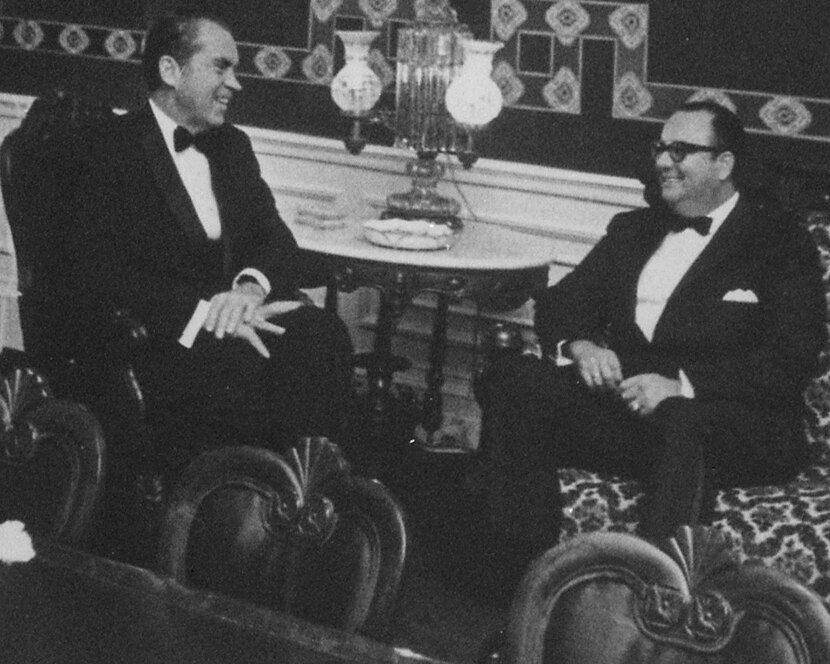Democracy does not exist in the originary communities.
Is that why they were able to resist five centuries of violence to exterminate them?
The imposition of democracy is a way of blurring differences, equalizing what cannot be equalized, in order to assimilate those who are different. That is why democracy is related to consumerism: in shopping there are no social or cultural differences, because in the time of consumption only money and merchandise count.
There are several ways of approaching the question of democracy.
One of them may be historical. The ruling classes only accepted the democratic vote of the entire population (initially excluding women, the poor and those who did not master the language of the State) when they could count on large media capable of dragging populations towards the options that suited the powerful. In history we see a parallel development of marketing as a technique to induce consumption that is also used in electoral campaigns.
For this reason I believe it is necessary to study democracy and consumerism in its close relationship with the manipulation of human emotions. Because that is what it is all about: provoking in consumers/voters a sympathy for this or that product/candidate. In fact, specialized companies speak of “electoral market” in which they apply “political marketing”, identical to that used by marketing techniques.
Mexican Guillermina Baena, a graduate in Information Sciences at UNAM, describes political marketing: “Our product (the candidate) and our brand (the party) will be exhibited through the media to try to win over the electorate’s taste “1.
Marketing is used to create parties and candidates and therefore to win elections. In this way, the techniques that model present-day capitalism serve to achieve and maintain political power and to bring down forces that cannot be co-opted or neutralized by the system. Only by abusing the term can these regimes be called “democratic.”
On the other hand, elections are not related to democracy. Even dictatorships have called elections. It is worth remembering that Anastasio Somoza (one of the most bloodthirsty dictators in Latin America) came to power through elections in 1967. In other words, dictatorship and electoral farce can go hand in hand. And here is an important note: the White House never questioned the electoral farces of the dictators, but when the Sandinista revolution triumphed, it began to press for “truly democratic” elections without exceptions.
In that 1967 election campaign, the National Guard fired its rifles at a demonstration by the electoral coalition Unión Nacional Opositora (UNO), causing between 100 and 200 deaths. However, the elections were not questioned by the OAS, which also looked the other way when coups d’état took place in Brazil in 1964, Argentina in 1962, 1966 and 1976, Chile and Uruguay in 1973.

By Jack E. Kightlinger, 1932-2009, Photographer (NARA record: 8451338) – U.S. National Archives and Records Administration, Public Domain, https://commons.wikimedia.org/w/index.php?curid=142756372
The concern of this organization (born in defense of U.S. “security”) for democracy followed the Sandinista revolution and the democratic declarations sought to prevent the possibility of it spreading to El Salvador and Guatemala. It did not even flinch in the face of the brutal repression of students in Mexico in 1968.
It is only with neoliberalism that the “defense” of democracy appears, as a sort of obligation, since this model has at least two characteristics that allow the ruling classes to accept the electoral results: the spread of the marketing techniques already mentioned, and the capacity of financial capital to provoke terminal crises in countries with governments that do not follow IMF prescriptions, which before neoliberalism did not have and had to limit itself to provoking coups such as the 1973 coup against Salvador Allende.
But the neoliberal model was possible thanks to coups d’état and authoritarian regimes that crushed all popular resistance.
As we know, in the native communities there are no such electoral election techniques. In other words, there is no democracy. Decisions are made by consensus, which implies an extensive process of inter-communication so that everyone knows what is involved. If it is time to elect a person to exercise authority in the community, its members know his or her personal trajectory, the family he or she is part of, and his or her ethical qualities. The election is not based on sympathy or pretty speeches, but on what everyone knows and values about the person.
Decisions can only be made by consensus as a result of a long process of discussions and internal communication, in which the differences between people are ironed out and the reasons for their opinions are clarified. This is what Carlos Lenkersdorf calls “the turbulent waterfall” in his book “The word of true men.”
The community assembly can last for days and in the first phase all the people speak at once, in order to exchange opinions and information. The “waterfall” only subsides when the people of the community are bringing their ideas in common. Then there is silence and someone, an elder, communicates the decision made by consensus.
It would be necessary to deepen the analysis of the relationship between marketing and depoliticization, between capital techniques and popular disorganization; and, on the other hand, the extensive decision-making processes that enable the capacity to resist the system on the basis of the reproduction of identity and culture.
Original text published in Desinformemonos on December 11th, 2023. https://desinformemonos.org/consenso-y-comunidad-vs-consumismo-y-democracia/
English translation by Schools for Chiapas.
Footnotes
- “El Marketing Político que llegó para quedarse”, en Revista Mexicana de Comunicación, 2005, en https://rsandov.blogs.com/files/baena-el-marketing-poli%CC%81tico-que-llego%CC%81-para-quedarse.pdf (consulta 11/12/2023).
